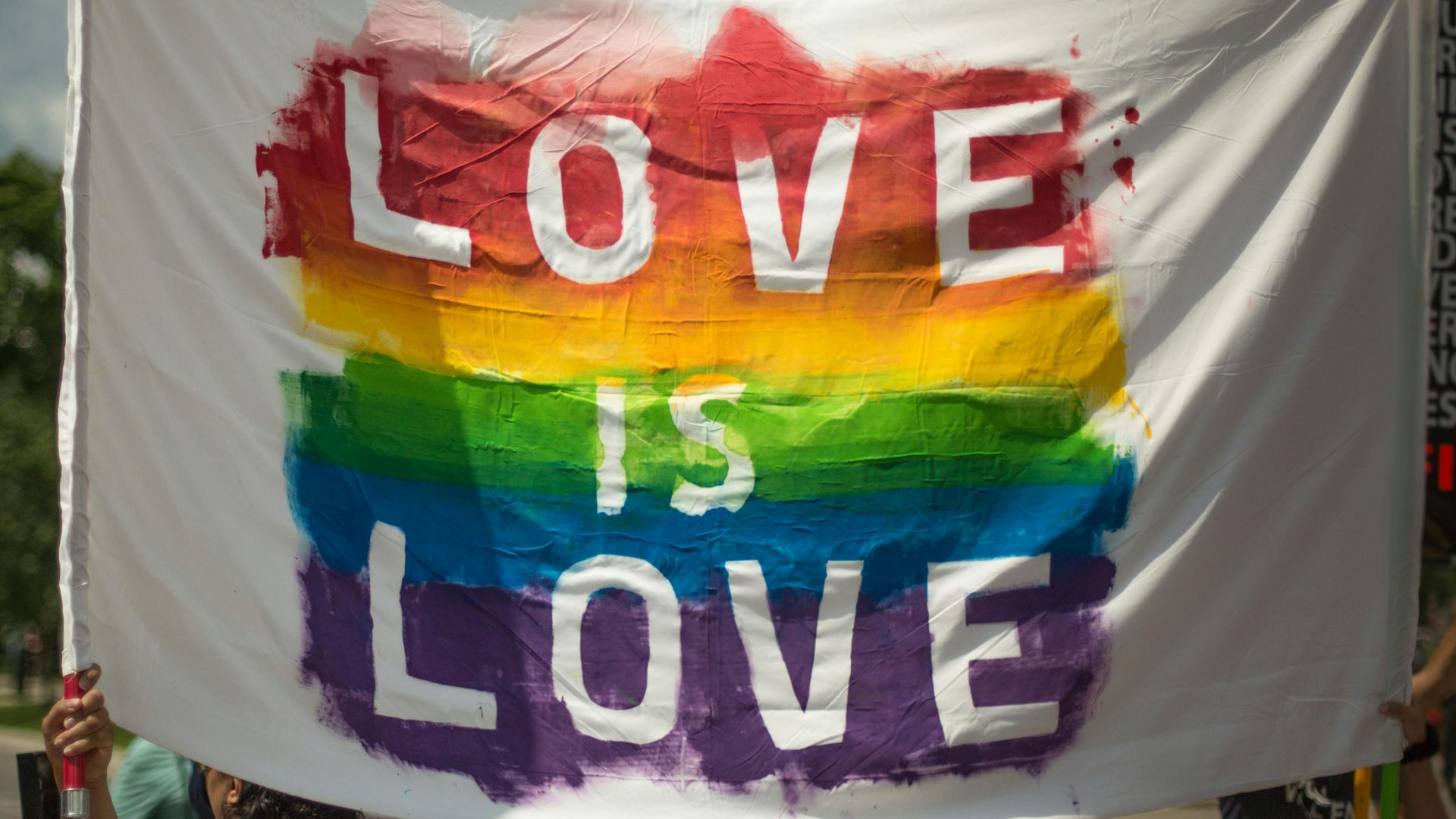Pride Month 2025: Celebrating LGBTQ+ Identity and Advocacy
PUBLISHED:

Pride Month is observed every June to honor the LGBTQ+ community's history, struggles, and achievements. Its origins trace back to the Stonewall Uprising of June 1969 in New York City, which ignited the modern LGBTQ+ rights movement. The first Pride marches occurred in June 1970, marking a pivotal moment in the fight for equality.
Today, Pride Month serves as both a celebration and a call to action. It includes parades, festivals, and educational events worldwide, drawing millions of participants. These gatherings commemorate the community's resilience and advocate for continu ed progress.
In 2025, Pride Month carries added significance, reflecting on the 10th anniversary of the Obergefell v. Hodges Supreme Court ruling that legalized same-sex marriage nationwide. However, the month also underscores ongoing challenges, such as political actions affecting transgender rights and diversity initiatives. Despite these obstacles, Pride Month remains a vibrant expression of solidarity and resistance within the LGBTQ+ community.
Pride Month is a time to celebrate love, advocate for equality, and honor the diverse identities that enrich our communities.
▶ Ways to Celebrate and Learn About LGBTQ+ History
- Explore Local LGBTQ+ Archives and Museums: Visit historic archives like the ONE Archives or the Lambda Archives of San Diego.
- Attend Pride Events and Festivals: Join both global events like World Pride and local festivals in your city.
- Engage with LGBTQ+ History Through Media: Watch films, read books, or listen to podcasts about LGBTQ+ experiences.
- Support LGBTQ+ Organizations and Businesses: Donate, volunteer, and shop at queer-owned businesses.
- Participate in Educational Activities: Create exhibits, use timelines, and promote inclusive curriculum.
- Document and Share LGBTQ+ Stories: Record or share oral histories using platforms like StoryCorps or OUTWORDS.
▶ LGBTQ+ History Films
- Before Stonewall(1984): Chronicles LGBTQ+ life before the 1969 Stonewall riots.
- The Queen(1968): Highlights early drag culture and the 1967 Miss All-America Camp Beauty Contest.
- Maurice(1987): A gay love story set in early 20th-century England.
- Pride(2014): Depicts the alliance between LGBTQ+ activists and striking miners in 1980s Britain.
- Carol(2015): A romantic drama exploring love and societal expectations in the 1950s.
- Moonlight(2016): Examines the life of a young Black man grappling with identity and sexuality.
- The Celluloid Closet(1995): Documents the history of LGBTQ+ representation in film.
- Paris Is Burning(1990): Explores Harlem's drag ball culture and broader social issues.
- Boys Don't Cry(1999): Tells the true story of a transgender man facing discrimination and violence.
- Disclosure(2020): Analyzes transgender representation in film and television.
▶ LGBTQ+ History Books
- The Gay Revolution by Lillian Faderman: Chronicles the LGBTQ+ rights movement in the U.S. from the 1950s to the 21st century.
- A Queer History of the United States by Michael Bronski: Examines queer influence on American culture and vice versa.
- The Deviant's War by Eric Cervini: A biography of Frank Kameny, a pivotal gay liberation activist.
- Let the Record Show by Sarah Schulman: An oral history of ACT UP New York and the fight against the AIDS crisis.
- Female Husbands by Jen Manion: Investigates individuals assigned female at birth who lived as men in the 18th and 19th centuries.
- Not Straight, Not White by Kevin Mumford: Explores the experiences of Black gay men during key moments in U.S. history.
- Before We Were Trans by Kit Heyam: Looks at gender-diverse histories across cultures and eras.
▶ LGBTQ+ Artists
- Frida Kahlo: Known for vivid self-portraits exploring identity, pain, and bisexuality.
- Leilah Babirye: Ugandan sculptor creating works on sexuality and identity.
- Zanele Muholi: South African photographer documenting Black LGBTQ+ lives.
- Sasha Velour: Drag performer and visual artist known for innovative performances.
- Alok Vaid-Menon: Gender non-conforming artist and advocate for bodily diversity.
- Freddie Mercury: Queen frontman celebrated for his voice and visibility as a queer icon.
- Wendy Carlos: Transgender composer and electronic music pioneer.
- Billie Eilish: Pop artist who has openly discussed her bisexuality.
▶ Influential LGBTQ+ Figures
- Harvey Milk: First openly gay elected official in California and LGBTQ+ rights champion.
- Marsha P. Johnson: Transgender activist involved in the Stonewall Riots and advocate for homeless LGBTQ+ youth.
- Bayard Rustin: Civil rights leader and key organizer of the 1963 March on Washington.
- Barbara Gittings: LGBTQ+ rights activist instrumental in removing homosexuality from the DSM.
- Audre Lorde: Black lesbian poet and activist whose work addressed identity and oppression.
- Nancy Cárdenas: Mexican playwright and TV personality who came out publicly and advocated for LGBTQ+ rights.
- Alan Turing: Codebreaker and pioneer of computer science, persecuted for his homosexuality.
- Sally Ride: First American woman in space, later revealed to be lesbian.
- Frida Kahlo: Renowned painter whose work and life explored queerness and feminism.
- RuPaul: Drag performer and TV personality who brought drag culture to the mainstream.
▶ LGBTQ+ Academy Award Winners
- Elton John: Won Best Original Song for "Can You Feel the Love Tonight" (1995) and "(I'm Gonna) Love Me Again" (2020).
- Sam Smith: Won Best Original Song for "Writing's on the Wall" (2016); identifies as gay and non-binary.
- Melissa Etheridge: Won Best Original Song for "I Need to Wake Up" (2007); thanked her wife in her acceptance speech.
- Alan Ball: Won Best Original Screenplay for American Beauty (1999); openly gay screenwriter and advocate.
- Dustin Lance Black: Won Best Original Screenplay for Milk (2008); dedicated the win to LGBTQ+ youth.
- Pedro Almodóvar: Won Best Foreign Language Film for All About My Mother (2000); openly gay Spanish filmmaker.
- Rob Epstein: Won for The Times of Harvey Milk (1985) and Common Threads (1990); celebrated documentarian of LGBTQ+ history.
▶ LGBTQ+ Pulitzer Prize Winners
- Glenn Greenwald: Won the 2014 Pulitzer for exposing global surveillance; openly gay journalist.
- David Moats: Won for advocating civil unions in Vermont; influential LGBTQ+ ally.
- Bettina Boxall: Awarded in 2009 for reporting on water issues in the West; advocate for LGBT journalists.
- Jericho Brown: Won for his poetry collection The Tradition ; openly Black gay poet.
- Michael Cunningham: Won for The Hours ; explores identity and love through interconnected stories.
- Andrew Sean Greer: Won for Less , a comedic story of a gay writer’s journey through middle age.
- Frank Bidart: Won for Half-light ; a collection of poems exploring desire and identity.
- Michael R. Jackson: Won for the musical A Strange Loop ; explores the life of a Black queer writer.
▶ LGBTQ+ Grammy Winners
- St. Vincent (Annie Clark): Won for Best Alternative Album and more; celebrates queer identity in her work.
- Chappell Roan: Named Best New Artist; rising queer pop star.
- Doechii: One of the few women to win Best Rap Album.
- Sam Smith: Swept major categories in their debut year; known for vocal LGBTQ+ advocacy.
- Tracy Chapman: Won Best New Artist in 1989; praised for her storytelling and quiet strength.
- Paula Cole: Best New Artist in 1998; known for challenging gender norms.
- Shelby Lynne: Won Best New Artist in 2001.
- Lady Gaga: Multiple Grammy winner; outspoken advocate for LGBTQ+ rights and mental health.
▶ LGBTQ+ Booker Prize Winners
- Douglas Stuart: Won for Shuggie Bain , a novel about a young gay boy in 1980s Glasgow.
- Marlon James: Won for A Brief History of Seven Killings , which includes queer Jamaican perspectives.
- Alan Hollinghurst: Won for The Line of Beauty , exploring gay life and politics in 1980s Britain.
- Bernardine Evaristo: Shared the prize for Girl, Woman, Other , which explores intersectional identities, including LGBTQ+ lives.
▶ LGBTQ+ Michelin Star Award Recipients
- Telly Justice: Executive chef of HAGS in NYC, known for creating an inclusive dining experience and mentoring queer cooks.
- Dominique Crenn: Chef at Atelier Crenn in San Francisco, the first woman in the U.S. to receive three Michelin stars; vocal LGBTQ+ and women's rights advocate.
- Julia Sedefdjian: Youngest chef in France to earn a Michelin star; openly lesbian and celebrated for her cuisine at Le Baieta in Paris.
▶ LGBTQ+ Olympic Medalists
This list includes openly LGBTQ+ athletes who have competed and medaled in the Olympic Games across various disciplines and years:
- Brian Boitano: Gold medalist in figure skating (1988).
- Greg Louganis: Diving champion with multiple gold medals (1984).
- Megan Rapinoe: Soccer gold medalist (2012), celebrated for advocacy and activism.
- Sha’Carri Richardson: Relay medalist (2024), openly queer sprinter and social advocate.
- Sue Bird& Diana Taurasi: Basketball legends with multiple Olympic golds (2004–2016).
- Jen Armbruster, Meghan Duggan, Brittney Griner, Stefanie Dolson: Representatives across basketball, hockey, goalball, and more.
▶ Key LGBTQ+ Achievements
- 1969: Stonewall Riots in NYC sparked the modern LGBTQ+ rights movement.
- 1973: Homosexuality removed from the American Psychiatric Association’s list of mental illnesses.
- 1987: ACT UP founded to fight the AIDS crisis and promote LGBTQ+ rights.
- 2004: Massachusetts became the first U.S. state to legalize same-sex marriage.
- 2015: Supreme Court's Obergefell v. Hodges legalized same-sex marriage nationwide.
- 2020: SCOTUS ruled Title VII protects against employment discrimination for LGBTQ+ individuals.
- 2025: Pride celebrated globally, underscoring both progress and ongoing challenges.
▶ Pride Month Events in Southern California
- WeHo Pride Weekend : May 30 – June 1
- AIDS/LifeCycle Ride : June 1 – 7
- Venice Pride Block Party : June 7
- LA Pride Parade & Pride Village : June 8
- Pride Night at Dodger Stadium : June 13
- Disneyland After Dark: Pride Nite : June 16 & 18
- San Fernando Valley Pride : June 28
- San Diego Pride Parade : July 19
- Out on the Mountain : August 22



